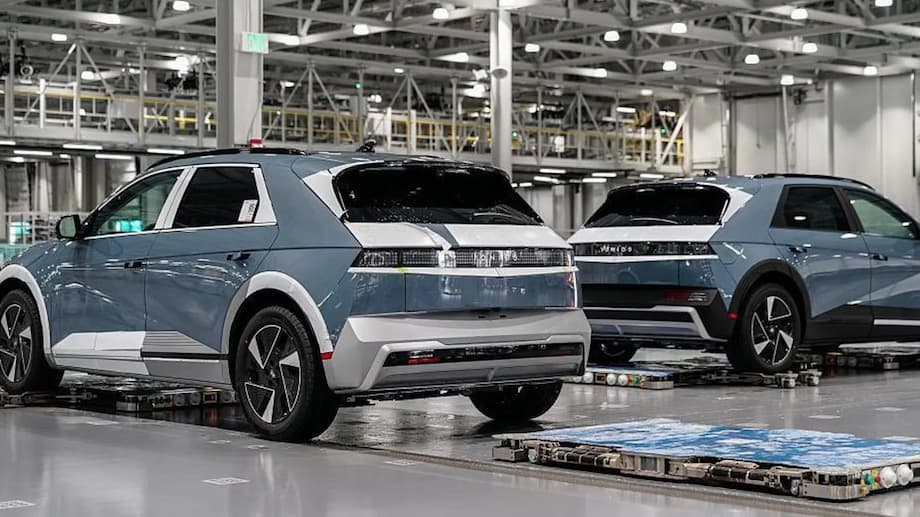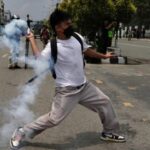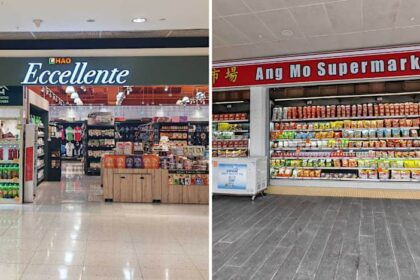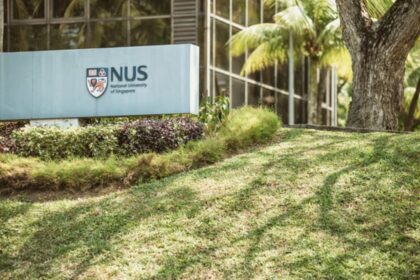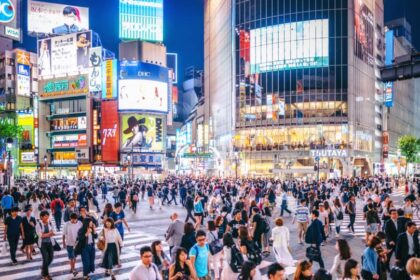Diplomatic race after a Georgia factory raid
Hundreds of workers were taken into custody when federal agents swept through a Georgia electric vehicle complex tied to Hyundai and LG Energy Solution, triggering an intense diplomatic push between Seoul and Washington. U.S. Immigration and Customs Enforcement said agents detained 475 people at the construction site of an EV battery plant near Savannah. South Korea’s government said more than 300 of those detained were its citizens. After two days of urgent talks, Seoul announced a deal to secure their release and to fly them home on a chartered plane once paperwork is completed.
- Diplomatic race after a Georgia factory raid
- What happened at the plant
- Who was detained and why
- Seoul’s push for a swift resolution
- Washington’s message to foreign investors
- Corporate response and a construction freeze
- Jobs, supply chains, and the visa bottleneck
- Enforcement, the law, and subcontractors
- How the return deal will work
- Public reaction in Georgia and Seoul
- Competing priorities for the White House
- What comes next for the Georgia project
- Key Points
The raid, which U.S. officials described as the largest enforcement action at a single site in Homeland Security Investigations history, paused construction at a project that Georgia leaders had celebrated as the state’s biggest economic development undertaking. The operation also surfaced a tension point: Washington has sought major foreign investment in advanced manufacturing, yet the companies behind these projects say they struggle to bring in the specialized talent needed to build and launch them within U.S. visa constraints.
South Korea, a close ally and one of the largest investors in U.S. clean technology and chips, conveyed regret over the sweep and moved quickly to assist its nationals. The government in Seoul said Foreign Minister Cho Hyun would depart for Washington to support the repatriation effort and to discuss how to prevent similar cases as more Korean-led projects break ground across the United States.
What happened at the plant
Agents from Homeland Security Investigations, ICE, and multiple federal and state partners executed a judicial search warrant at the battery facility that sits within the broader Hyundai manufacturing complex in Ellabell, about 25 miles west of Savannah. Authorities blocked roads, established staging areas, and halted work while officers processed workers. Footage released by ICE showed lines of workers being frisked, some in plastic restraints, as agents directed people onto buses. Construction stopped across portions of the site.
Officials said the operation followed a weeks-long inquiry into unlawful employment practices. A judicial warrant named four individuals, but the enforcement action widened at the site as officers encountered workers suspected of living or working in the United States without authorization. Most detainees were transported to the ICE Processing Center in Folkston, Georgia.
Workers described a chaotic morning: phone calls to shut down operations, supervisors corralling crews, and confusion about who was permitted to stay. One South Korean worker told the BBC that some people tried to run and a few ended up in a sewage pond in the scramble, while many who were not detained were separated and questioned before being released. State and federal officials said more than 400 agents took part in the sweep.
Who was detained and why
According to South Korean officials and immigration attorneys, the detained group included employees of subcontractors and specialist technicians who had arrived from Korea to help install and calibrate production equipment. Some entered under the Visa Waiver Program, known as ESTA, which allows visa-free travel for up to 90 days for tourism or business meetings. That status does not permit hands-on work. Others were reportedly on short-term business visas known as B-1, which also bar productive labor, or they had overstayed earlier visas. U.S. officials said some entrants had crossed the border without inspection. None of the companies’ senior statements indicated that direct Hyundai manufacturing employees were among those detained, and LG Energy Solution said 47 of its staff members were picked up along with many contractor employees.
Employment authorization and immigration status are related but distinct under U.S. law. A person can be lawfully present yet not authorized to work, or conversely be work authorized in limited circumstances despite a pending status. Federal law requires employers to verify identity and work authorization for each hire using Form I-9, and Georgia encourages electronic verification through E-Verify. Investigators often test compliance through audits and site visits, especially when many layers of subcontractors are involved.
Many detainees are expected to depart the country on a voluntary basis, a process that avoids a formal order of removal on an immigration record. For those who entered under the visa waiver program, the law provides no right to see a judge, and ICE can enforce an order to depart quickly. In this case, Seoul said it would pay for a chartered flight to bring its citizens home.
Seoul’s push for a swift resolution
South Korean diplomats in Washington and Atlanta were dispatched to the site and to detention facilities soon after the operation began. The government said it had finalized negotiations with the United States to repatriate its citizens once administrative steps conclude, and that a charter flight would depart as soon as schedules and clearances are set. Presidential Chief of Staff Kang Hoon-sik told ruling party leaders that Korea would also reexamine how it sends technicians to the United States for investment projects.
Kang Hoon-sik, chief of staff to President Lee Jae Myung, described the government’s immediate priorities after the deal was struck. He said:
We will not let our guard down until we have our people safely back home. We will also review and improve the visa system for those who go to the United States on business trips related to investment projects so that similar incidents won’t be repeated.
Foreign Minister Cho Hyun scheduled urgent meetings in Washington and said the goal is to ensure detainees can leave voluntarily and avoid long-term entry bans, then to work with U.S. counterparts on predictable visa pathways for short-term specialists needed to build complex factories.
Washington’s message to foreign investors
The White House defended the operation, saying companies that invest in the U.S. must follow immigration law when bringing in skilled workers. President Donald Trump said foreign firms are welcome, yet they should bring in technical talent legally and also hire and train Americans. Tom Homan, the White House border adviser, backed the enforcement strategy on television over the weekend.
Homan, a former acting ICE director now serving as the administration’s border coordinator, framed the issue in simple terms. He said:
It is a crime to work and live illegally in the United States.
Homeland Security Investigations leaders said the battery-site sweep was part of a broader effort targeting unlawful employment and related crimes. Since early this year, federal officials have increased worksite inspections under a policy that seeks to prosecute employers who knowingly use unlawful labor while removing those who are not authorized to work.
Immigration enforcement has accelerated under Trump’s current term. Congress provided ICE with more funding for detention and transport, and department leaders have signaled that large operations at factories and construction sites will continue. Business groups and some state officials have asked the administration to clarify processes for short-duration technical work, arguing that backlogs in H-1B specialty occupation and L-1 intracompany transfer categories have pushed firms to use business visitor entries for time-sensitive projects where technicians are doing more than brief meetings or training.
Corporate response and a construction freeze
Hyundai said those arrested were not its direct employees and that the company would cooperate fully with the investigation. LG Energy Solution stated it is working with authorities to secure the release of staff and partner employees, and that most business trips to the United States have been suspended for now. LG’s chief human resources officer, Kim Ki-soo, traveled to Georgia to coordinate on the ground, while Hyundai’s North America manufacturing chief, Chris Susock, assumed operational oversight at the Georgia site with an instruction to ensure all subcontractors follow U.S. regulations.
The raid halted activity at the battery facility, a project designed to supply the nearby Hyundai EV assembly plant. Officials had projected several thousand jobs at full production. The Georgia complex spans about 2,900 acres and has been marketed as a linchpin in the state’s electric mobility corridor, with state and local incentives designed to attract a cluster of suppliers.
Industry officials interviewed by Korean and U.S. media said the vast build-out of battery and chip facilities in the United States depends on rotations of experienced engineers who can install proprietary equipment, debug lines, and train local teams. They also acknowledged that visa delays led some companies and contractors to push travel categories that do not permit productive work, a practice the Georgia operation has now put under a spotlight.
Jobs, supply chains, and the visa bottleneck
The battery project epitomizes a policy goal in both countries. Washington wants more high-value manufacturing in the United States, and Seoul’s top conglomerates have committed to massive plants for cars, batteries, chip fabrication support, and components. The timeline pressure on these projects is intense. A modern EV battery plant requires precise installation of high-voltage equipment, dry rooms, and sensitive materials handling. Many steps rely on proprietary processes and tooling that are not yet common in the U.S. labor market.
That is where immigration categories matter. The H-1B program is capped annually, oversubscribed, and subject to a lottery. L-1 visas for intracompany transfers help move managers and specialized knowledge workers, but adjudications have become more rigorous and processing times can stretch. The B-1 business visitor category covers meetings and limited training but prohibits productive work. The visa waiver program is even narrower, allowing only short visits for business consultations or tourism, not on-the-job tasks. When projects crowd schedules and costs, firms sometimes rotate teams on 90-day visits to keep construction moving, a strategy that breaks down the moment investigators decide that on-site activities amount to work.
Korean industry media reported that dozens of related U.S. projects involving shipbuilding, steel, and electrical equipment put travel on hold and recalled staff out of caution. Executives warned that repeated raids will delay start-up windows and raise costs, unless both governments develop clear, rapid visa channels for short-duration technical assignments that are common during factory construction and ramp-up.
Enforcement, the law, and subcontractors
Worksite cases often hinge on layers of responsibility. The Immigration Reform and Control Act of 1986 created employer sanctions for hiring people who lack authorization to work in the United States. Every employer must complete the I-9 verification process and make a good-faith review of documents. Prime contractors may insist that subcontractors do the same, yet practical control can be diffuse on sprawling sites. That is one reason investigators visit in person, sit workers down, and check identification against records.
Georgia encourages the use of E-Verify, which checks against Social Security and Department of Homeland Security records, though the system cannot catch every case of identity fraud. If investigators later conclude that a company or its vendors knowingly used unauthorized workers, civil fines or criminal charges can follow. Prosecutors may also bring separate counts for document fraud, wage theft, or safety violations, depending on the evidence.
The New York Times reported that the Georgia complex has faced local scrutiny over safety and labor practices, and that at least three workers have died at the site according to local law enforcement. Company officials said safety is a top priority and announced their own internal reviews, while reiterating compliance obligations for all vendors.
How the return deal will work
Seoul said the workers will leave the United States on a voluntary basis, a process in which people agree to depart at their own expense in exchange for avoiding a removal order that can trigger long bars to reentry. The South Korean government is footing the bill for a chartered flight. Immigration attorneys say this case stands out for the speed and scale of a government-coordinated repatriation.
Sarah Owings, an immigration attorney in Atlanta who represents several detainees, called the arrangement unusual. She said:
I do not know of another instance where a government has responded with chartering a flight.
Attorneys also noted that visa waiver entrants typically have no right to see an immigration judge and can be returned promptly. Others who overstayed a visa may face different timelines depending on whether they have prior orders or relief available. ICE said the broader investigation into employment practices remains open, and no criminal charges had been filed as of the weekend.
Public reaction in Georgia and Seoul
The operation sparked protests outside the complex, where demonstrators held signs in Spanish and Korean and demanded fair treatment for detainees. Business leaders in Savannah and Bryan County expressed concern about construction delays and the message the raid sends to investors. Korean American community groups said families were distraught, with some spouses unable to reach loved ones who left their phones behind when the sweep began.
Georgia’s governor has enthusiastically backed the state’s EV manufacturing boom and recruitment of Korean firms. At the same time, state officials supported the federal action. A statement from the governor’s office emphasized the legal baseline for companies operating in Georgia. It said:
All companies operating within the state must follow the laws of Georgia and the nation.
In Seoul, major newspapers criticized the timing of the raid just days after leadership meetings and announcements of new investment plans. Government officials said the country remains committed to U.S. projects but will push for visa arrangements that recognize the reality of factory construction. LG Energy Solution said its long-term expansion in North America remains on track, though business travel from Korea to U.S. sites is on pause.
Competing priorities for the White House
The administration has pressed South Korean industrial giants to expand in the United States, while also tightening visa scrutiny and ramping up worksite enforcement. In public remarks, President Trump said investment is welcome and that skilled workers can enter lawfully, coupled with an expectation that companies train and hire Americans. The border adviser, Tom Homan, and Homeland Security leaders previewed more high-profile operations, arguing that unlawful employment undercuts U.S. workers and allows unsafe practices to spread.
At the same time, U.S. tariffs and trade bargaining with Seoul have been tied to large investment pledges in energy, chips, batteries, and vehicles. South Korean officials said they secured tariff relief on some exports after agreeing to expanded purchases and investment in the United States. Business groups now worry that sudden immigration sweeps will add uncertainty and cost to projects that Washington has encouraged.
What comes next for the Georgia project
Construction was paused after the raid, and the timeline for restarting full activity is not yet clear. The companies said they remain committed to the complex. State leaders have a strong incentive to see it through, since suppliers and training programs are linked to the project. Even if the charter flight departs quickly, replacing skilled technicians and restarting installation work will take time, especially if travel freezes remain in effect and U.S. visa routes for short-term technical support are not clarified.
Investigators will continue reviewing records seized under the search warrant and interviewing workers. Any eventual penalties will depend on whether they find evidence that firms or subcontractors knowingly used unauthorized labor or cut corners on verification. For now, the focus between the two governments is to resolve the immediate human and diplomatic problem, and to avoid a repeat as other mega factories move from site prep to equipment installation and ramp-up.
Key Points
- ICE and Homeland Security Investigations detained 475 workers at the Hyundai LG battery construction site near Savannah, Georgia, the largest single site action in HSI history.
- More than 300 detainees are South Korean nationals. Seoul says it reached a deal with Washington to secure their release and fly them home on a chartered plane.
- Those returning are expected to leave under voluntary departure, which avoids a formal deportation order. Many had entered on visa waiver or B-1 business visas that do not allow hands-on work.
- Construction at the battery facility is paused. Hyundai says none of those detained were its direct employees. LG says 47 staff members were detained along with many contractor workers.
- Tom Homan defended the raid, while President Trump said foreign companies must bring workers legally and hire and train Americans.
- South Korea will review visa processes for technicians on U.S. investment projects. Korean firms have frozen U.S. business travel pending clarity.
- The Georgia project had been touted as the state’s biggest economic development effort and is central to U.S. EV supply chains.
- Broader investigations into employment practices are ongoing. No criminal charges were filed as of the weekend.


